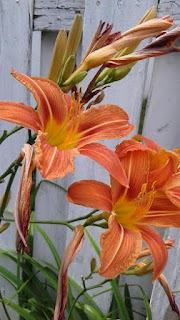How do you grow the best organic garden ever? It is easier to do this than many people think. We tend to get lost in the word organic and the need for organic products to be certified but this does not apply to food you grow for your own personal consumption. So get past the word organic and think about what makes a garden grow and flourish. In other words, how do you grow the best damn garden ever?
The following steps will take you from no garden to a bountiful garden that uses no artificial ingredients aka organic and produces gorgeous flowers, healthy herbs and delicious vegetables.
Step One: Seeds.
Use heritage or heirloom seeds, you get the vegetables you plant or quality seeds will produce quality plants. The heritage seed will breed true to the parent so there are no surprises.
Heirloom seed and heritage seed are used interchangeably. They both refer to an open-pollinated cultivar that was commonly grown for many years but is not widely used in industrial agriculture.
Be sure to plant the seeds according to the instructions on the seed pack. If you keep a garden journal, you will be able to record how well your planting works and make adjustments as you learn.
If you want to save seeds then choose heritage as you will get what grows and no surprises.
Step Two: Soil.
The successful gardener knows that the main gardening chore is to grow healthy and vital soil. Healthy soil produces healthy plants. If you compost, then you are already producing a prime ingredient in the organic garden; one that when added to the garden bed or containers feeds the soil and provides what your plants need to thrive.
If you do not compost, I suggest getting started but until your have a supply for the garden, consider buying some organic compost from a local garden centre or plant nursery. The money is well invested.
Step Three: Sun.
This is actually the first thing you do, be sure to situate the garden bed in a location where the plants will get the amount of sunlight they need to grow and produce the herbs, flowers and vegetables you want. Most vegetables require six to eight hours of sun per day as do most herbs and many flowers. Locate the garden properly and much of your work is done.
Step Four: Mulch.
Applying mulch to the garden bed is an effective way to conserve water, reduce weeding and enhance your garden’s fertility. There is a wide array of material that will make good mulch; I have used straw, for example, to great effect.
Basic Gardening Tasks:
On a regular basis you will need to;
1- Water, if it does not rain you will need to water your garden. If possible do this in the morning. Water long so the water goes deep, you are watering the plant roots so give the water time to sink in. If you can not water in the morning do it after supper. Avoid mid-day watering as the sun will dry the bed out before the water sinks in. got a rain barrel, no, they are a great way to conserve water.
2- Inspect the garden at least three times a week. You are looking for changes. Unwanted visitors or leaves changing colours for example are warning signs that problems are beginning, early detection can save the crop.
3- You can also deadhead flowers while inspecting the bed and pull any weeds that may have set root.
Harvest each crop when it is ready and remove any flowers or vegetables that have fallen to the ground. This keeps bugs away and makes sure you get the food before it is overripe. I set aside a few plants for saving seeds, this way I ensure that the following season I have a supply of the best seeds from the plants I enjoy.
You can have the best garden ever without overworking yourself, plan carefully and when it comes to size, if it is your first garden, start small and let it grow was your time and skills do.















